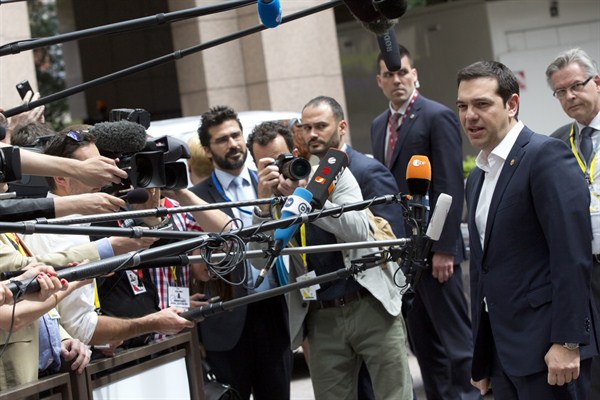Another round of bailout talks today between Greece and its creditors, the so-called troika of the European Commission, the European Central Bank (ECB) and the International Monetary Fund (IMF), ended without a deal. Next Tuesday Greece is scheduled to make a $1.8 billion loan repayment to the IMF at the same time its bailout program is due to expire. If there is no agreement, an additional $8.1 billion in bailout funds will remain frozen; Greece will default on its loans; and the country could be forced to leave the eurozone.
European finance ministers are scheduled to reconvene Saturday for a last-ditch effort to reach a compromise. German Chancellor Angela Merkel, whose country is Greece’s biggest creditor, said today that there must be a debt deal with Greece before markets open Monday. Merkel also wants the Greek parliament to vote on the bailout deal before the other eurozone parliaments, which must approve any deal, have their votes.
While many observers are preparing for the worst-case scenario of the so-called Grexit, there are signs that both sides are slowly moving closer together. Greece’s creditors, particularly the IMF, are demanding stricter reforms to ensure that Greece can meet stringent economic targets. Greek leaders, including Prime Minister Alexis Tsipras, whose Syriza party came to power on a strict anti-austerity platform, have argued that such targets are unrealistic and unfair. In the face of growing pressure from the troika, Greek leaders submitted a proposal late Monday that was more in line with its creditors’ demands, including significant pension reforms. Yet, while Monday’s proposal is much closer to a compromise plan presented by creditors three weeks ago, Tsipras’ reforms focus more on raising taxes, which Greece has struggled to collect in the past, than on cutting spending, as the IMF prefers.

